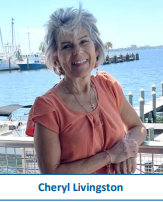My paternal grandparents were my heroes. Wise beyond their time, they relished teaching our family
that knowledge is power, health is everything, and love is unconditional. Back then, Prevention health
magazine and vitamin supplements filled their mailbox and 1960’s exercise guru Jack LaLane, and health food
advocate Euell Gibbons, beckoned new followers from a talking picture box in the living room. Eavesdropping
on adult conversations around their Sunday dinner table was a sport. When their voices lowered, and their
eyes bowed, I’d freeze, waiting to hear the word “CANCER” whispered from their tight lips, followed by the
name of a person somehow acquainted.
In a blink, my paternal grandpa, who had been a poster child of a life led healthy and clean, was dead
from melanoma. Pancreatic cancer swiftly stole the life from my paternal grandma, just a few years later.
Looking back at our family tree, both the maternal and paternal branches quivered under the weight of
serious cancers – great-grandparents, four grandparents, great uncles, great aunts, father, mother, sister,
uncles, aunts, first and second cousins. Cancer had rotted our family tree to the core.
At age 40, my sister (I’m the oldest of four girls), and later my mother, were each diagnosed with lobular breast cancer. Six months after mom’s diagnosis she was gone, having unexpectedly flatlined in the ER, from an unknown cause. One less loved one to break the news to that, only days before, I was inducted into the “you have cancer” club, specifically early-stage ductal breast cancer. Now what? My mind hadn’t considered that my type of breast cancer would be different from theirs. Hoping for better insight, I paid a visit to Vanderbilt’s Hereditary Cancer Clinic.
There, they tested me for many inherited cancer genes, but no BRCA gene mutation was found nor were mutations found in any other genes at this time that would explain the cancers in my family. My sister, who also beat her breast cancer, was proven BRCA negative, back in the day. It’s been suggested she be retested, even for the BRCA mutations again, as much has changed in the past 20+ years, but she has chosen not to test again. There is a weight to knowing some things. Once we’ve opened that proverbial envelope of test results, for better or worse, we are responsible for management and stewardship of caring for that knowledge, for the rest of our lives. So, with much respect, I want to emphasize choosing not to know is also power…and my grandparents would be proud their teachings had not been lost on us.
– Cheryl Livingston

